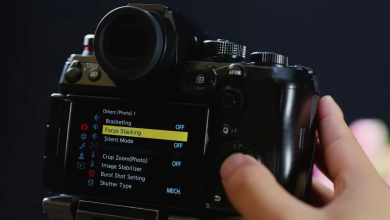AI Copyright Ruling: Implications for Authors and AI Companies

The recent court ruling regarding AI copyright has sparked significant discussions about its implications for both authors and AI companies. This article delves into the details of the ruling and its potential impact on the industry.
Big Win for AI
We’re witnessing a surge of AI copyright cases making their way through the judicial system, each with significant implications for our industry and the future use of AI.
A recent federal court ruling has yielded a nuanced outcome in the fair use lawsuit initiated by authors and studios against the Amazon-backed AI firm, Anthropic.
While this decision marks a notable victory for Anthropic concerning the use of lawfully acquired copyrighted materials for AI training, the company still faces an upcoming trial over allegations of utilizing pirated books.
Let’s break it down.
Big Wins for AI
As reported by The Hollywood Reporter, the lawsuit filed by authors Andrea Bartz, Charles Graeber, and Kirk Wallace Johnson accused Anthropic of large-scale copyright infringement, claiming the company profited from their works without authorization by using them to train its AI model, Claude.
This issue is critical, as AI companies are scraping the internet and compiling vast amounts of information, which they then use to generate their own content.
If that information is copyrighted, it constitutes an infringement.
U.S. District Judge William Alsup ruled that Anthropic’s use of legally purchased books to train its large language models (LLMs) was “quintessentially transformative” and therefore qualified as “fair use” under U.S. copyright law.
In simpler terms, the ruling suggests that if the AI was trained on books they paid for, it is akin to learning, and thus cannot be considered stealing if it uses information it “learned” from those works.
This sets a crucial precedent for AI development, indicating that training AI on lawfully obtained copyrighted works may not infringe copyright laws.
The judge noted that, similar to a human reader, Anthropic’s LLMs learned from the works to create something new and distinct, rather than merely replicating or replacing the originals.
Bigger Wins for Authors
One key aspect of this ruling will likely influence how AI companies proceed.
Anthropic’s alleged establishment and maintenance of a “central library” containing millions of pirated books was deemed a violation of copyright and did not fall under fair use.
See More ...
This means Anthropic will face a separate trial in December to determine potential damages for its use of these illegally obtained materials.
This development is significant because it clarifies that AI companies cannot simply scrape the internet and take content; they must compensate for it.
Court documents also revealed internal concerns among Anthropic employees regarding the legality of using pirated sites to access books, prompting the company to shift towards purchasing and scanning physical books.
They were right to be concerned; it was against the law.
Where We Go From Here
This mixed ruling has elicited varied reactions. Some view it as a victory for technological innovation, potentially accelerating AI advancements by legitimizing the use of existing data.
Others, particularly content creators, express concerns that while AI training on legally acquired material may be permissible, the issue of pirated content remains a significant threat to intellectual property rights and livelihoods.
This situation highlights that, despite internal concerns, there is ongoing theft regarding what companies can extract from the internet.
Anthropic is not alone in facing litigation; Midjourney is also embroiled in a similar lawsuit against Disney, Universal, and other major Hollywood studios.
Summing It All Up
The Anthropic case represents a pivotal moment, shaping how AI companies approach data acquisition and usage, while underscoring the ongoing need for clarity and consistency in legal standards governing AI development.
The outcome of the December trial will further define the legal boundaries for AI in the realm of copyright.
And I’m rooting for the humans.
Let me know your thoughts in the comments.




